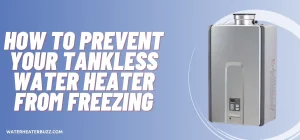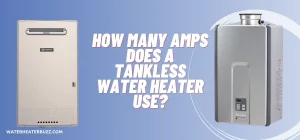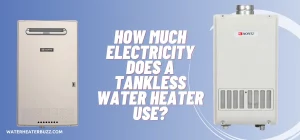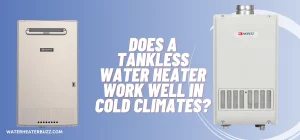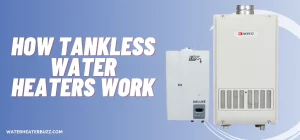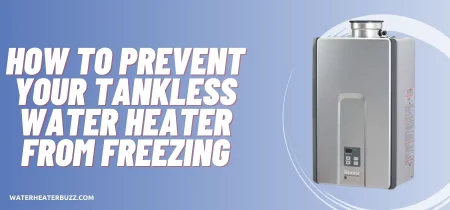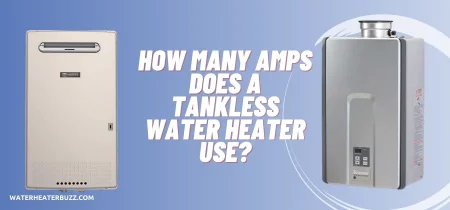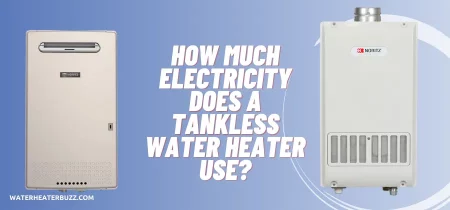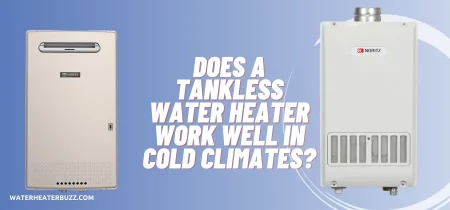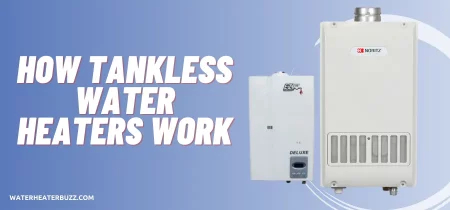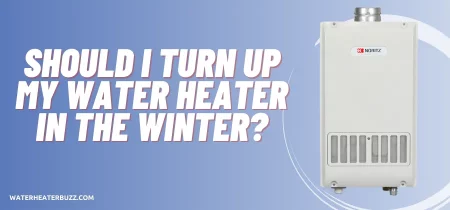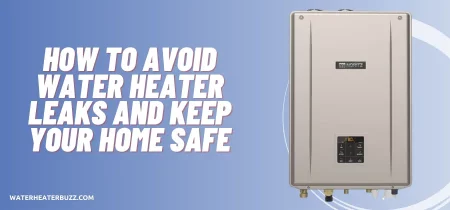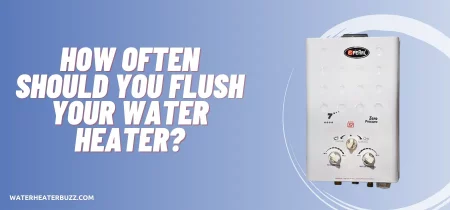There is no denying the fact that a water heater brings ultimate comfort in our lives, but for it to function optimally, you need to conduct regular maintenance checks.
Just like all the other machines and appliances, an annual or sometimes a monthly tuning for a water heater is necessary to prolong its life. If your water heater has been left unchecked for quite some time, now is the time to get it inspected. Here is my water heater maintenance checklist, which will help you in many ways.
Water Heater Maintenance Checklist
If it’s your first-time water heater maintenance examination and you are worried about what to do, then worry no more. This water heater maintenance checklist highlights all the essential things you must do.
You can either conduct this maintenance examination yourself because it’s that simple. Or you can hire a professional plumber for proper tuning. So, let’s get started.
Check For Leaks
Water heaters, especially the ones that come with tanks, tend to leak. It is something that is bound to happen. Leakage from water heaters is a lot of hassle because it damages the equipment and causes a lot of water waste.
Besides that, plumbing leaks can be fussy because they affect water temperature and inhibit overall water heater performance.
Therefore it is necessary to run plumbing leaks check on your water heater yearly or twice a year. In that examination, you will need to look for loose and rusted nuts and screws.
An old gasket is also a significant cause of water heater leaks. It is wise to change the gaskets twice a year. You can do these tasks easily yourself; however, if the matter is out of hand, it is best to call a professional.
Check Water Pressure
There is a water pressure code with every water heater. Water pressure higher than that code would be problematic as it inhibits the performance of your water heater. You are required to check for the water pressure of both the drain valve and hose bib every now and then.
If you find the water pressure greater than required, which is 80 psi, you need to install a pressure-reducing valve to your water heater. This can be done with the help of a water heater technician so that it can work optimally.
Thermal Expansion Control
There are specific rules and codes for plumbing that you should adhere to, to protect your appliances and machines.
Expansion in the plumbing systems is inevitable; therefore, you need to install an expansion tank with a closed plumbing system.
Note that thermal expansion can damage your water heaters. Not only that, it increases the water pressure in your water heater, which leads to ruptures that can be dangerous.
Temperature And Pressure Relieve Valve Check
Temperature and pressure valve, also known as T and P valve, is present in all homes for the safety of all the appliances. It comes in handy when the temperature and pressure in your household appliances such as water heaters increases.
You should check for your T and P valve monthly to know if it’s working correctly. Any rise in the water pressure or temperature will cause leakage in the T and P valves.
When you notice a drippy T and P valve, you need to regulate the temperature and pressure and replace the valve with the help of a water heater technician.
Drain And Flush Tank Check
It is imperative to maintain the drain and flush tank for your water heater to function up to the mark. If you have a gas or an electric water heater, it is essential to check the drain and flush tank after every few months. For that, you need to close the drain valve and release at least two to three gallons of water until it turns transparent.
Look for the chalkiness, which is mainly calcium carbonate build-up due to hard water; this is what you need to get rid of.
Before opening the drain valve, make sure you close the cold water tap to stop the water from running into the tank. In addition to that, turn open the temperature and pressure valve to ensure there is no pressure build-up.
Once the water starts running clear, close the drain valve. After that, turn on the hot water tap and let the water run for some time to make sure there are no air bubbles trapped.
Anode Rod Check
An Anode rod installed inside the water heater is made up of either steel, zinc, aluminum, or magnesium. It prevents corrosion from occurring to the maximum.
Although an anode rod lasts for good five years, you should examine it every year to check for complete corrosion due to oxidation. It needs replacement after it has badly eroded. So, this is pretty much everything you should include in your water heater maintenance checklist and work upon every point regularly.
Frequently Asked Questions
Why is water heater maintenance necessary?
Just like all other home appliances and machines, water heaters do need annual or twice a year maintenance examination to check for any damages. A water heater that is kept unchecked for a longer time loses its life sooner. Other than that, a damaged component in your water heater can also pose a severe threat. Therefore you should get your water heating system checked regularly.
How often does your water heater need a maintenance check?
Some features in a water heater need examination after every few months. For instance, you need to watch out for leaks in the plumbing pipes every month. Other than that, check for the water pressure and thermal expansion monthly to keep yourself and your appliance safe from damages. All further maintenance checks should be done yearly or twice a year.
How often should I flush my water heater?
It is recommended to flush the water heater every year, especially if it is the one that comes with a tank. It is because our domestic water supply consists of minerals deposited on the walls of the water heater. Therefore it is necessary to flush your water heater tank once a year and check for the anode rod timely.
Final Thoughts
Hot water in cold weather is a blessing that has no comparison. Thanks to the innovative technologies used in water heaters that have made warm water running through our taps possible. If you wish your domestic water heaters to keep functioning optimally, you need to get them examined regularly so that there would be minimal damages.

